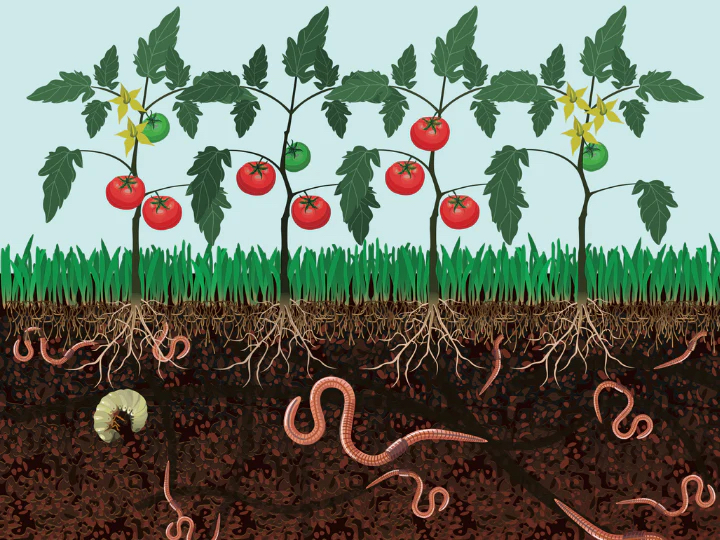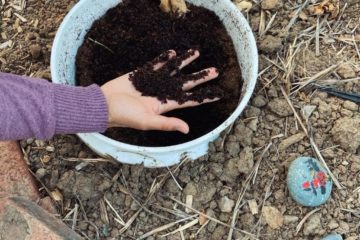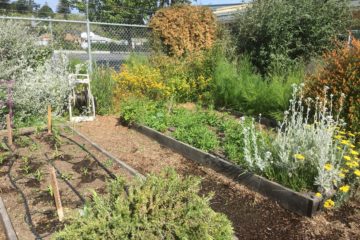Written by Hunter Kirn, Education & Curriculum Intern
Kids are fascinated by worms. But what makes worms so amazing? Worms are the superheroes of composting and are important to keeping our garden healthy. Worms help breakdown food waste and turn it into nutritious compost that we can use to give our gardens nutritious for our plants to grow.
Today we will be learning what is needed for worms to thrive in a compost bin!
Just like people, worms have things they can and cannot eat. Some things that are safe for worms to eat include:
- Eggshells (not the egg)
- Grains
- Non acidic food scraps
- Tea leaves and coffee grounds
- Shredded newspaper and cardboard
Some things to avoid:
- Acidic foods
- Onions and garlic
- Dairy products
- Meat, fats, grease, bones or oils (no butter, lard, stocks, soups, etc)
- Plastic
- And large bulk items
Large bulk items include large melon rinds or a whole cauliflower. Large items are harder for worms to compost. It helps to chop up food scraps into smaller pieces so worms can process scraps more efficiently.
Now that we have a solid list on what to feed and what not to feed worms, how do we keep the worms happy and ourselves happy!
Compost bins when using worms should not be too deep since most worms live in the top few inches of soil. Almost anything can be used as a bin. A great resource is Uncle Jim’s Worm Farm where they show you how to make your own compost bin!
If you have a composter close to your house where it can attract smell there are a few tips to help avoid this.
- Your compost bin could be to moist, adding paper (newspaper and cardboard) can help soak up moisture
- Worms could be overwhelmed by the amount of food being added. Worms can only eat their body weight in a day. So a good rule of thumb is to add the same amount of weight of food as you have worms. For example if you have 3 pounds of worms you would not want to add more than 3 pounds of food scraps a day.
- If you have extra scraps but already reached your weight limit for adding scraps you can freeze your leftovers. This also helps by dehydrating and maturing your food which the worms will love.
No matter the reason you are composting, make sure to harvest your worm casting. Worm Castings are vermicompost, aka worm poop. If you are composting to reduce waste you can donate your vermicompost harvest to local gardens or save for your potted plants.

Sources:
DIY Worm Bin – How To Do It Right



0 Comments